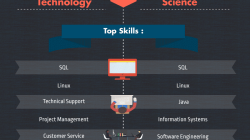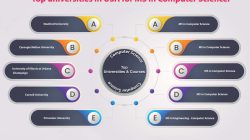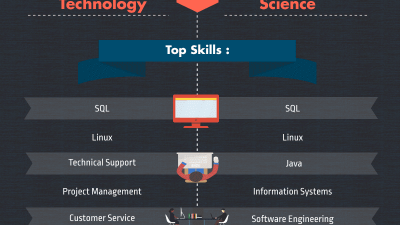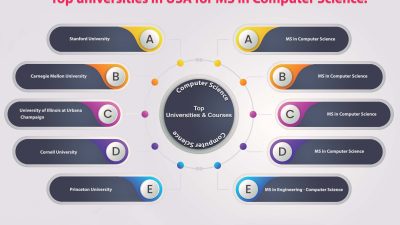
So, you’re thinking about a career in health information technology, huh? That’s awesome! It’s a booming field, offering fantastic opportunities & a real chance to make a difference. But where do you even begin? Well, one fantastic stepping stone is an Associate of Science in Health Information Technology (AS in HIT) – and let me tell you why you should seriously consider it. This isn’t just another degree; it’s your passport to a dynamic career with excellent job prospects. Are you ready to dive into the details?
First things first, what exactly is an AS in HIT? It’s a focused two-year program designed to equip you with the essential skills & knowledge needed to thrive in the healthcare IT world. Forget those long, drawn-out four-year degrees! You can get yourself up to speed & into a rewarding job much faster with this path. We’re talking about learning the nitty-gritty of medical coding, health information management, electronic health records (EHRs), data analysis, and so much more. Think about it, you’ll be handling sensitive patient data, ensuring the accuracy of medical records, and helping to improve the overall efficiency of healthcare systems; it’s incredibly important work!
The beauty of an AS in HIT is its practicality. This isn’t just theoretical learning; you’ll get hands-on experience with industry-standard software & technology, giving you a huge leg-up when you start applying for jobs. Many programs include internships or practicums, providing real-world experience within actual healthcare settings. That means you’ll graduate not just with a piece of paper but with proven skills & valuable networking connections. It’s a win-win situation! Plus, a lot of these programs are flexible, offering online or hybrid learning options – perfect if you’re juggling work, family, or other commitments. You could get the education you need, all from the convenience of your own home; what a bonus!
Now, let’s talk about the job market. The healthcare industry is massive, and it’s only growing. As technology continues to advance, the need for skilled health information technicians is soaring. Graduates with an AS in HIT are highly sought after by hospitals, clinics, insurance companies, & countless other healthcare organizations. Think about the job titles: Medical Coder, Health Information Technician, EHR Specialist, Data Analyst – the opportunities are practically endless! And that leads to fantastic salary prospects, significantly better than many other associate’s degrees! That’s right; invest in your education & set yourself up for a lucrative future, and who doesn’t want that! So what are you waiting for!
The advantages are clear, it’s time for action. An Associate of Science in Health Information Technology offers a fast track to a fulfilling career in a vital field with incredible job growth potential, all in a surprisingly short amount of time. Ready to explore your options? Let’s look at finding a program near you in the next section! Are you ready to take this step towards a brilliant career?
Related Post : stevens institute of technology masters in computer science
Associate of Science in Health Information Technology: Your Path to a Rewarding Career
The healthcare industry is constantly evolving, and at its heart lies Health Information Technology (HIT). With the increasing reliance on electronic health records (EHRs), data analytics, and patient portals, skilled HIT professionals are more in demand than ever. An Associate of Science (AS) in Health Information Technology offers a direct pathway to a fulfilling and lucrative career in this dynamic field.
What is Health Information Technology (HIT)?
Defining Health Information Technology
Health Information Technology encompasses the use of computer systems and software to store, retrieve, share, and use health information. It’s about managing the flow of patient data efficiently and securely, improving patient care, and streamlining healthcare operations. Think of everything from electronic health records (EHRs) to medical billing software, telemedicine platforms, and data analytics tools—all fall under the HIT umbrella.
HIT vs. Health Informatics: What’s the Difference?
While often used interchangeably, there’s a subtle difference. HIT focuses more on the technical facets of managing health information, while Health Informatics emphasizes the examination and interpretation of that data to improve healthcare decisions and outcomes. An AS in HIT offers a strong foundation in both areas.
The Growing Demand for HIT Professionals
The healthcare industry’s digital transformation is driving significant growth in HIT job opportunities. The need for professionals who can manage, analyze, and protect sensitive patient data is rapidly expanding. This translates into excellent career prospects for graduates with an AS in Health Information Technology.
Why select an Associate of Science in Health Information Technology?
An AS in HIT offers a focused, efficient path to a rewarding career. It’s a practical degree that equips you with the essential skills and knowledge to enter the workforce quickly. It’s also a great stepping stone to further education, such as a bachelor’s or master’s degree in Health Informatics.
Career Opportunities in Health Information Technology
Graduates with an AS in HIT can find functions as:
- Health Information Technicians
- Medical Records Technicians
- Health Data Analysts
- Coding Specialists
- EHR Specialists
Salary Expectations for HIT Graduates
Starting salaries for HIT graduates vary by location and experience, but they are generally rival. The field offers excellent potential for career advancement and salary growth.
Job Satisfaction in the Field of HIT
Many HIT professionals report high job satisfaction. The work is challenging and rewarding, knowing that you’re contributing to better patient care and more efficient healthcare systems.
What You’ll Learn in an Associate’s Degree Program
Core Courses in an AS in Health Information Technology
Typical courses include medical terminology, health data management, coding and billing practices, database management, health information systems, and data analytics.
Specializations within HIT Programs
Some programs offer specializations in areas like health informatics, data analytics, or cybersecurity. This allows you to tailor your education to your specific interests.
Practical Skills and Hands-on Experience: Internships and Clinical Rotations
Many programs incorporate internships or clinical rotations, giving you valuable real-world experience.
Choosing the Right Health Information Technology Program
Accreditation and Program Recognition
Look for programs accredited by reputable organizations. Accreditation ensures a high standard of education and boosts your job prospects.
Program Curriculum and Course Structure
Carefully review the curriculum to ensure it aligns with your career objectives.
Faculty Expertise and Resources
select a program with experienced and knowledgeable faculty who are readily available to support students.
Location and Campus Environment: Online vs. On-Campus Programs
Consider whether an online or on-campus program optimal suits your learning style and lifestyle.
The Application Process and Admission Requirements
Prerequisites for Admission to HIT Programs
Admission requirements vary, but a high school diploma or GED is typically required.
Required Documents and Application Fees
Gather all required documents and be prepared for application fees.
Financial Aid and Scholarships for HIT Students
Explore financial aid options, including grants, loans, and scholarships.
Life After Graduation: Career Advancement and Continuing Education
Professional Certifications in Health Information Technology (e.g., RHIT, RHIA)
Earning professional certifications, such as the Registered Health Information Technician (RHIT) or Registered Health Information Administrator (RHIA), can boost your career prospects.
Master’s Degree Programs in Health Informatics or Related Fields
An AS in HIT can serve as a springboard to a master’s degree in Health Informatics or a related field.
Continuing Education Opportunities for HIT Professionals
The HIT field is constantly evolving, so continuing education is crucial to staying current.
Is an Associate of Science in Health Information Technology Right for You?
Assessing Your Interests and Skills
Consider your interests, skills, and personality traits to see if a career in HIT is a good fit.
Considering Your Career objectives and Aspirations
Align your educational choices with your long-term career aspirations.
Exploring Alternative Career Paths in Healthcare
study other healthcare careers to ensure HIT is the right path for you.
Frequently Asked querys (FAQs) about HIT Careers
What are the day-to-day tasks of an HIT professional? Tasks vary by function, but may include data entry, data examination, coding, billing, and maintaining patient records.
What are the challenges and rewards of a career in HIT? Challenges include managing large amounts of data and ensuring data security. Rewards include contributing to patient care and working in a fast-paced, dynamic environment.
How can I network with other HIT professionals? Attend industry conferences and join professional organizations.
What technological skills are essential for HIT careers? Proficiency in EHR software, database management, and data examination is crucial.
Conclusion: Launch Your Healthcare IT Career Today!
The demand for skilled HIT professionals is high and growing. An Associate of Science in Health Information Technology is an excellent investment in your future, opening doors to a rewarding and impactful career in healthcare.













